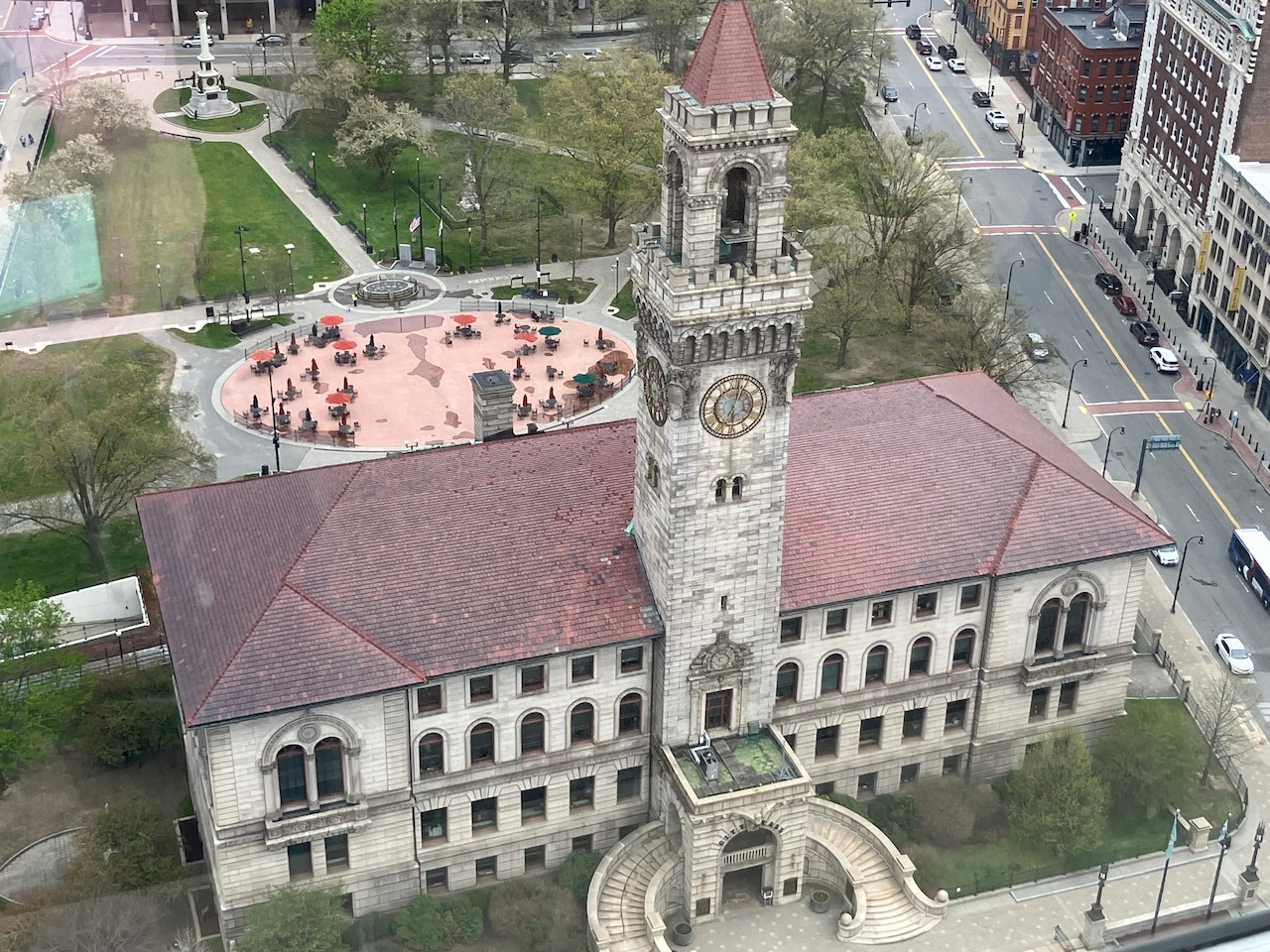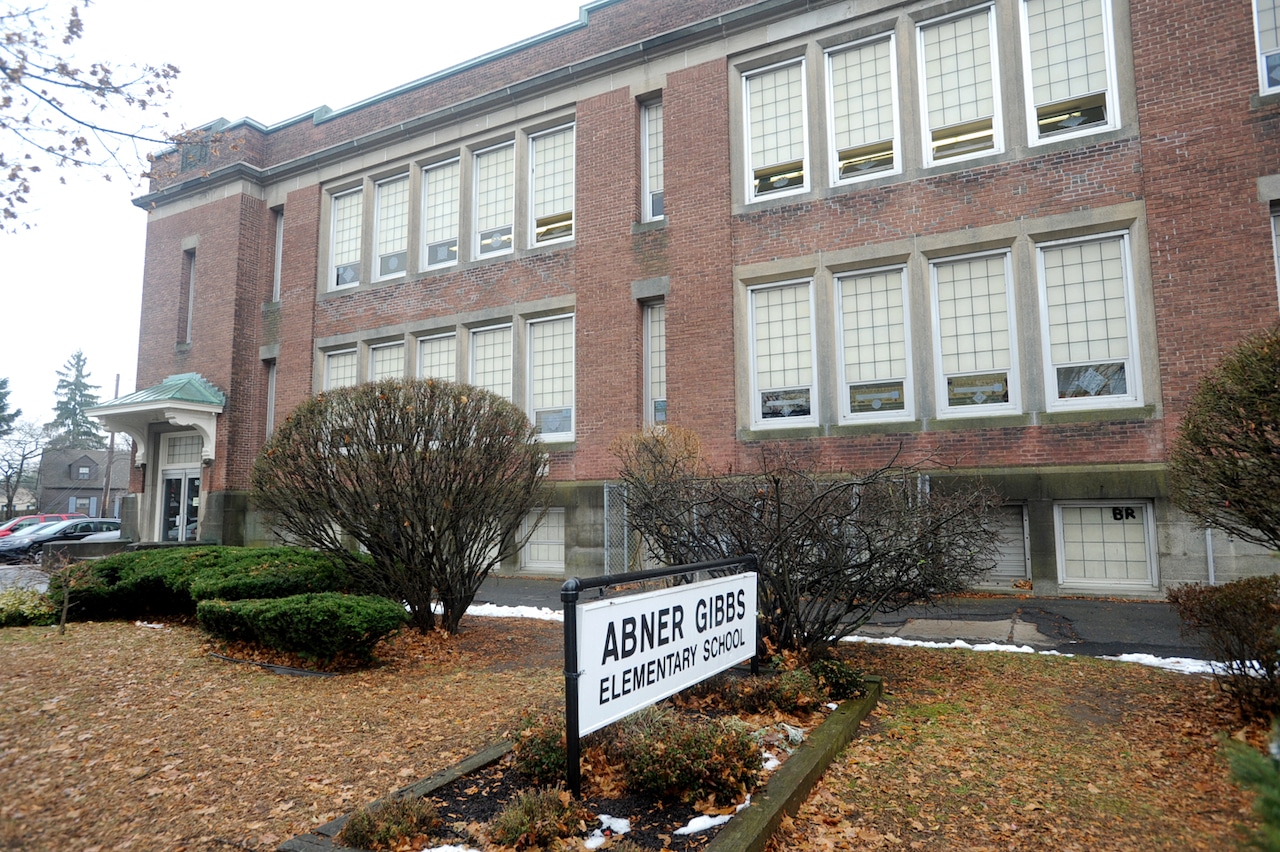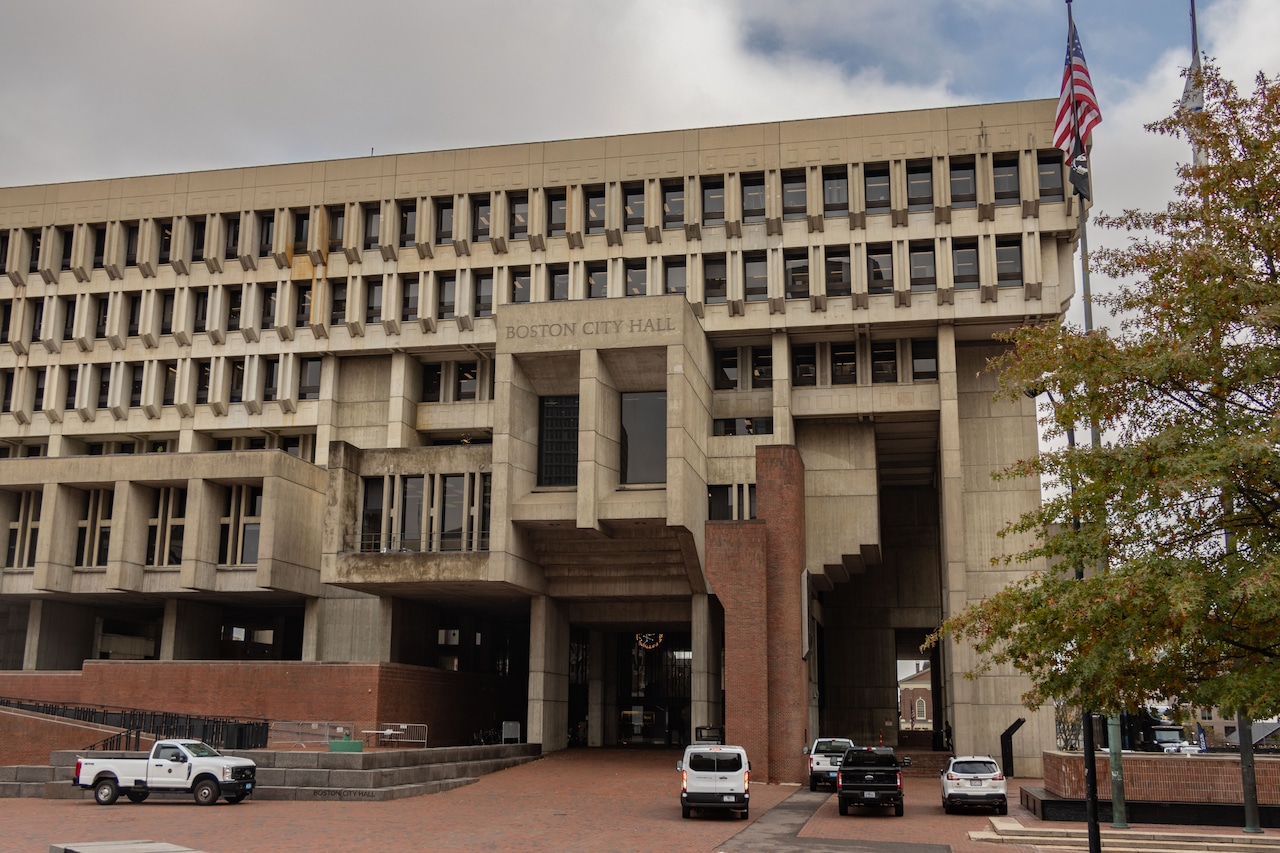
Oliver Chadwick of Worcester loves to walk. Heading out to buy groceries at the Big Y near his home, going to work and walking in a loop to help reset his mind after work are all essential parts of his life in the city.
But he doesn’t always feel safe doing so, he told MassLive. He’s had several near misses with cars speeding down the road, he said.
“This is what happened to me the other day Chandler Street,” he said. “I was at a crosswalk and the car in the closest lane to me let me go. I walk out into the street and the car that was going the other way didn’t stop at all. I could see the guy looking down at his phone, he just blew right through the crosswalk without stopping If I hadn’t been looking for that and I walked, I almost certainly would have been hit by that guy.”
Chadwick said these incidents have become frequent and believes one way to reduce crashes is by reducing Worcester’s 30 miles per hour speed limit — a proposal the Worcester City Council will consider in the coming weeks.
During a meeting on Aug. 27, City Councilor-at-Large Donna Colorio announced the traffic and parking subcommittee will hold an emergency meeting on Sept. 4 to review a proposal that would lower the city’s statutory speed limit to 25 mph from 30 mph and establish 20 mph safety zones in “sensitive areas.”
The proposal is being considered as multiple serious crashes have taken place in the city.
On June 24, a 1-year-old girl suffered a head injury after being hit by a car near 243 Lincoln St. A 13-year-old girl was struck and killed by a vehicle on Belmont Street on June 27. Another 13-year-old was seriously injured after being hit by a car while crossing Shrewsbury Street on July 29.
These recent crashes prompted Batista and Mayor Joseph Petty to issue a statement declaring a road safety crisis on Aug. 1 to “draw attention to the serious and worsening problem of traffic violence and rally the community behind actions to address it.” This year, more than 2,800 motor vehicle crashes have taken place in Worcester, 51 of which caused serious injuries or deaths. More than 90 of those crashes have involved pedestrians or cyclists, according to the statement.
The City Council subcommittee will also review a public, online survey about the proposal that was launched by the Department of Transportation and Mobility in June of this year.
The survey, which was sent as a communication to the City Council at their meeting, contained 1,512 unique responses and found that 51% responded in favor of reducing the city’s statutory speed limit while 43% opposed and 6% were undecided. The survey found that 70% supported the creation of 20 mph safety zones in specific areas of the city. Twenty-four percent were opposed to safety zones and 6% were undecided. These areas include parks, playgrounds, hospitals, senior citizen housing and childcare centers, according to the communication.
Colorio, who chairs the sub-committee, told MassLive she intends to move the proposal out of the subcommittee at the Sept. 4 meeting and put it in front of the entire council for a vote on Sept. 10.
City Manager Eric Batista submitted the proposal to the council on Dec 5, 2023. In his letter to the Council, Batista wrote that the recommendation to lower speed limits is part of Vision Zero, a street safety movement that aims to eliminate fatalities and serious injuries on Worcester’s roadways. In a letter to Batista that same day, Stephen S. Rolle, the commissioner of Worcester’s Department of Transportation and Mobility, cited a study from the National Association of City Transportation Officials that found pedestrians struck by vehicles traveling 35 mph are five times more likely to die than a pedestrian struck by a vehicle traveling at 20 mph. Rolle wrote that over the past decade, Worcester experienced more than 5,300 crashes that have resulted in confirmed injuries, including 958 crashes that resulted in serious injuries or deaths.
“In urban environments where pedestrians and bicyclists are present, higher speeds are directly and exponentially linked to increased risk of severe injuries and deaths,” Rolle wrote. “Lowering statutory speed limits to 25 mph has shown to be effective at reducing speeding — particularly excessive speeding — which will have a positive effect on the safety and access of all roadway users and vulnerable roadway users in particular.”
If approved, Worcester would follow in the footsteps of Boston and Springfield, as both cities had their speed limits lowered to 25 mph in 2017. The 25 mph speed limit would apply to all public streets in Worcester that are not subject to special speed regulations that establish regulatory speed limits, according to Rolle. Rolle wrote the excluded streets include interstate highways, state highways under the jurisdiction of the Massachusetts Department of Transportation (MassDOT) and local arterial corridors subject to special speed regulations, such as a section of Main Street and Stafford Street.
Support and opposition from residents
The proposal to lower Worcester’s speed limit has divided some city residents.
Chadwick, who supports the proposal, told MassLive the proposal could reduce pedestrian deaths in Worcester as well as near-misses, like the ones he has experienced.
“A lot of people have worked hard to get us to this point,” Chadwick said. “Trying to get any change or progress in local politics, especially in Worcester, is like pulling teeth.”
Yenni Desroches, another Worcester resident, told MassLive she also supports lowering the speed limit.
“Most of the streets I walk on are the city standard 30 mph streets,” she said. “It’s harder to get over 30 when there’s as many stop signs as there are in our neighborhood. There’s only one spot we don’t have a stop sign on my corner and we definitely have had kids almost get hit as cars speed up.”
Worcester resident Sue Cahill believes Worcester’s 30 mph speed limit it should stay the same. She told MassLive that the city needs to do more to enforce the current laws against speeding rather than change the speed limit.
“We should keep at standard of 30,” Cahill told MassLive. “Reducing the speed limit will not correct the issue of pedestrian accidents. Enforcement of the current speed limit will. People will still speed regardless unless enforcement happens.”
Al Dancy, another Worcester resident, said that he supports making changes to the city’s traffic laws but that he wants to see enforcement of the current laws in place.
“I think a logical approach to the issues we’re seeing is to first require our police to enforce the laws that we currently have on the books,” Dancy said.
The road to lower speed limits
It has been almost nine months since the proposal to lower the speed limit was first proposed to the council. After the proposal was sent to the traffic and parking subcommittee, five separate meetings were held in each of the city’s five districts to gauge public opinion and hear feedback, according to Colorio.
Colorio said the meetings had a combined total audience of approximately 40 people and was disappointed about what she felt was a lack of public participation. She requested an online survey to get more public opinion — which the council voted in favor of on May 7, according to the council minutes. The Department of Transportation and Mobility then launched the survey in June and compiled the data in August, Colorio said.
During the Aug. 27 council meeting, a group of people spoke in support of the proposal during the public comment period — asking the council to quickly move forward on its approval.
“We need to make progress and stop holding,” said School Committee member Sue Mailman, who spoke at the meeting. “All of these things are going to send a message to the public.”
Desroches told MassLive that the City Council needs more urgency regarding pedestrian safety and should let the Department of Transportation and Mobility do its job.
“It’s like they have no sense of urgency,” she said. “Commissioner Rolle is champing at the bit to make improvements.”
Colorio told MassLive she felt the timeline was reasonable and gave the public enough time to weigh their thoughts on the issue.
“I think we had a really good job by holding these meetings and I think the survey went a step further,” Colorio said. “I feel confident moving forward.”






